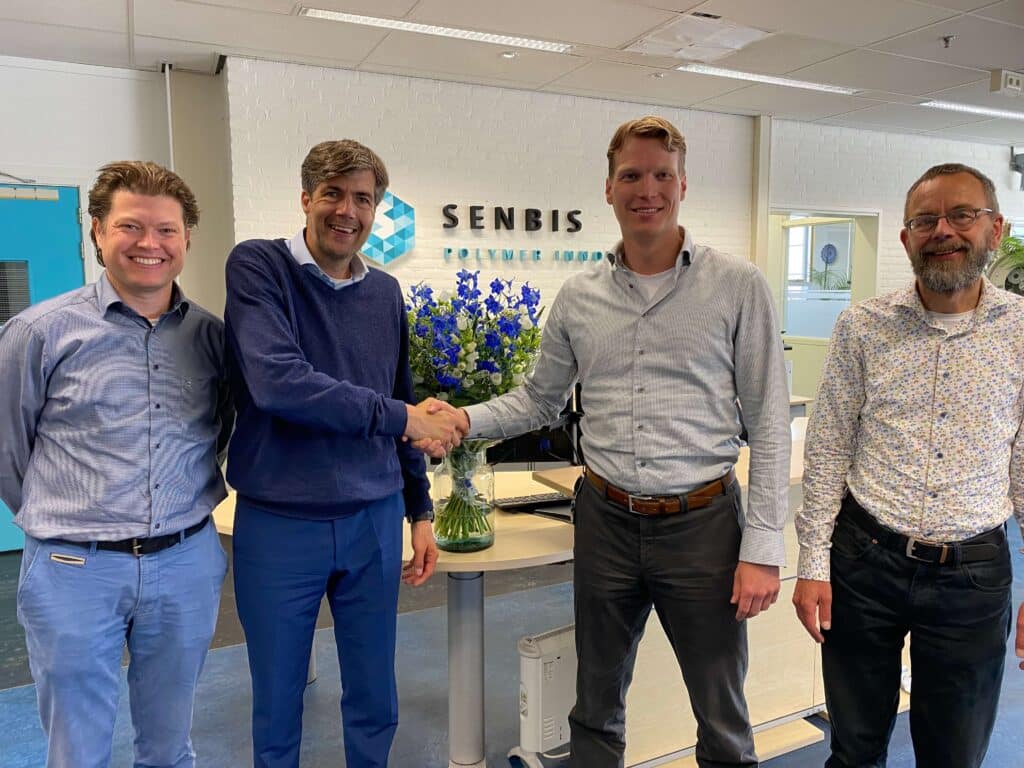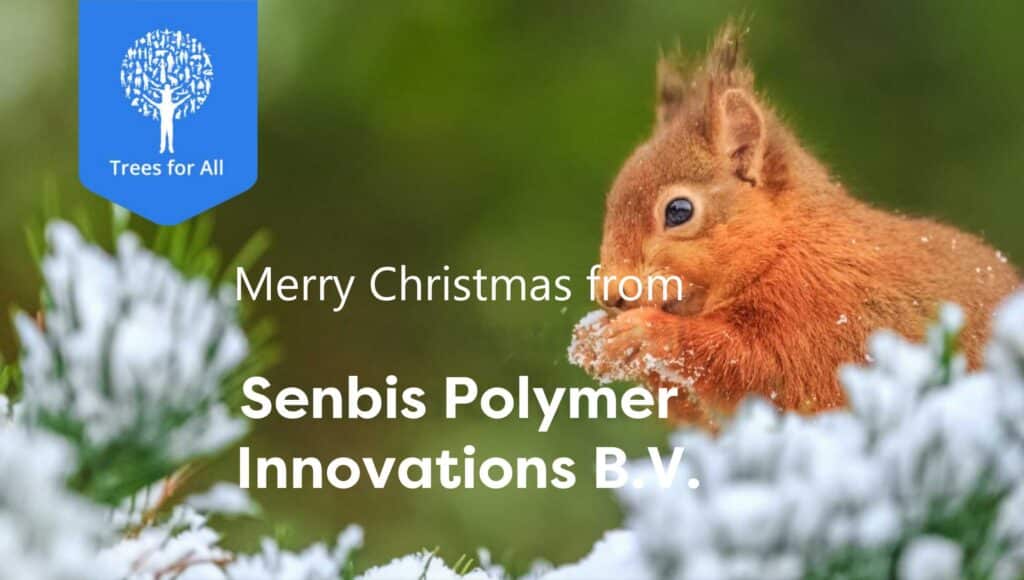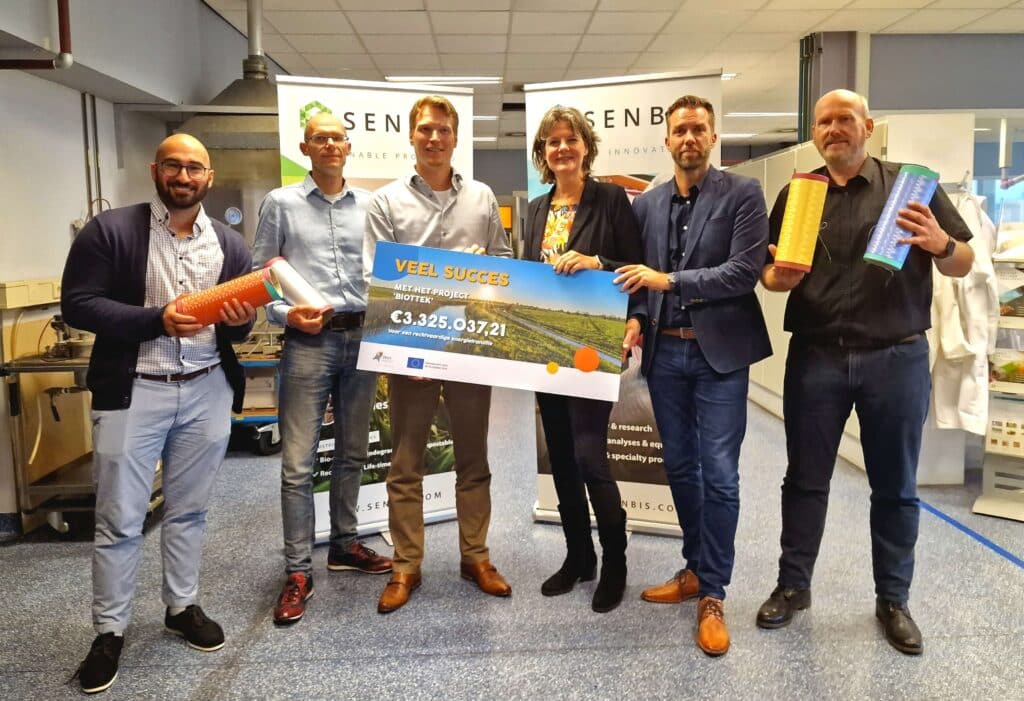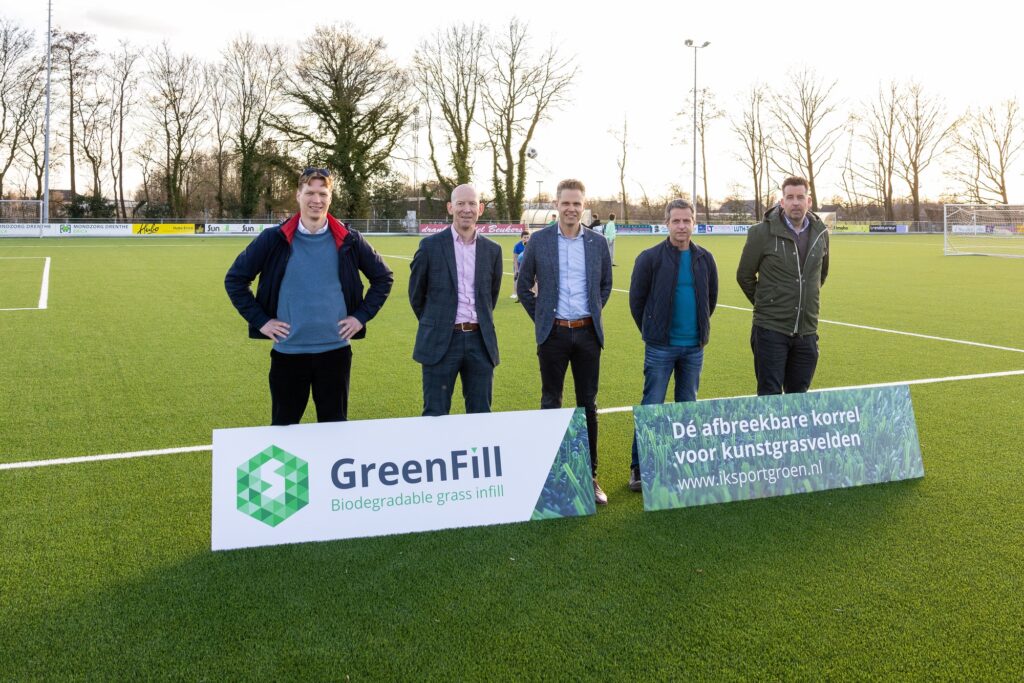
Paques Biomaterials and Senbis Polymer Innovations have partnered strategically to develop new applications for a breakthrough biopolymer with all the advantages of plastics but without its disadvantages. Paques Biomaterials has been working on a new value chain in which bacteria in organic waste streams produce the biopolymer PHA for more than ten years. “Our background is in biotechnology,” says Joost Paques, founder of Paques Biomaterials, “and with this collaboration, biotechnology and chemistry join forces which is a formula for success for a biopolymer. We are convinced we will soon produce a high-quality alternative to fossil plastics, which can be widely applied and prevent microplastics.”
Senbis Polymer Innovations is a chemical R&D company specialising in biopolymers. “We will help Paques Biomaterials develop different PHA grades suitable for a wide range of applications,” explains Gerard Nijhoving, managing director of Senbis. “Paques Biomaterials develops the PHA, but we give direction on which way it must be developed and then evaluate it. Paques Biomaterials has a promising biopolymer in hand with Caleyda. It is biobased and highly biodegradable in all kinds of environments. Their product is unique because it is made from waste streams and doesn’t use genetically modified bacteria. That makes it sustainable and natural on all sides. This involves a major challenge to deliver consistent quality, as for plastic processing purity is the key.
Senbis has all commercially available biopolymers in-house and has researched them. We know what works for which application. Many PHAs we see now need to catch up in mechanical and thermal properties compared to other bioplastics. If we can improve these topics with Paques Biomaterials, their PHA Caleyda will soon be a serious player in the market.”
“We also see much potential for this material for so-called compounds. That means mixing the PHA with other biopolymers. For some applications, you need a mix of bioplastics to get the required mechanical properties and velocity of biodegradability,” says Gerard Nijhoving. “Like applications such as injection moulding, yarns, 3D printing or films. With this knowledge, Paques Biomaterials can optimise Caleyda where necessary, and we work together towards a high-quality PHA. Furthermore, you can use these compounds to serve new applications. We also see opportunities for this in our customer portfolio and even within our product development.”
The beginning of this new circular value chain is already at an advanced stage. Paques Biomaterials has already signed a memorandum of understanding (MOU) with Kolon Industries and Kolon Global in South Korea, launching large-scale production of PHA from food waste. In Europe, the first full-scale plants in which bacteria make PHA in industrial wastewater, sewage sludge and organic waste streams (vegetable/fruit waste) are also under development. In cooperation with five Dutch Water Boards and waste and energy company HVC, Paques Biomaterials has been optimising this process with a demo plant in the last few years. The PHA biomass is a reality, and in the next phase of the value chain, this biomass will be extracted and purified into a clean biopolymer PHA called Caleyda. For this phase, the cooperation with Senbis is crucial. With their knowledge and expertise, we will make Caleyda the natural and high-quality alternative to plastic with the advantages but without the disadvantages.
Note to editors:
For more information, please contact Joost Paques of Paques Materials (tel: 0031 6 10799153) or Gerard Nijhoving of Senbis Polymer Innovations (tel: 0031 591 308 100)
About Senbis Polymer Innovations
Senbis is a R&D company specialising in biopolymers. Besides research for third parties, Senbis does its product development. Originating from the former R&D department of Akzo Nobel, Senbis has extensive, modernised lab and pilot facilities and decades of experience in plastics, fibre and yarn development.
About Paques Biomaterials
Paques Biomaterials uses natural bacteria and processes to produce biodegradable PHBV biopolymer, using organic material in waste streams as nutrients. This way, a natural alternative to plastic is produced from waste with high added value and wide applicability. The Paques Biomaterials team has been working on scaling up this technology for more than a decade and is currently preparing to introduce its products and processes commercially.



